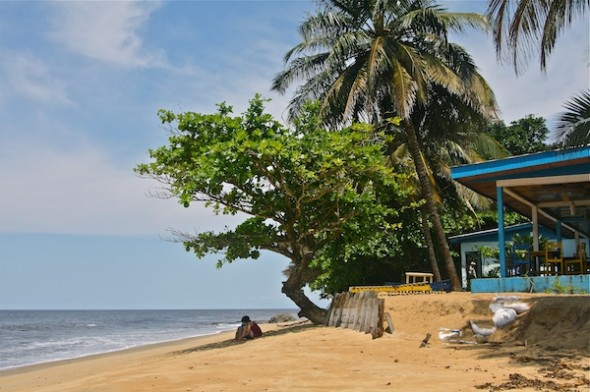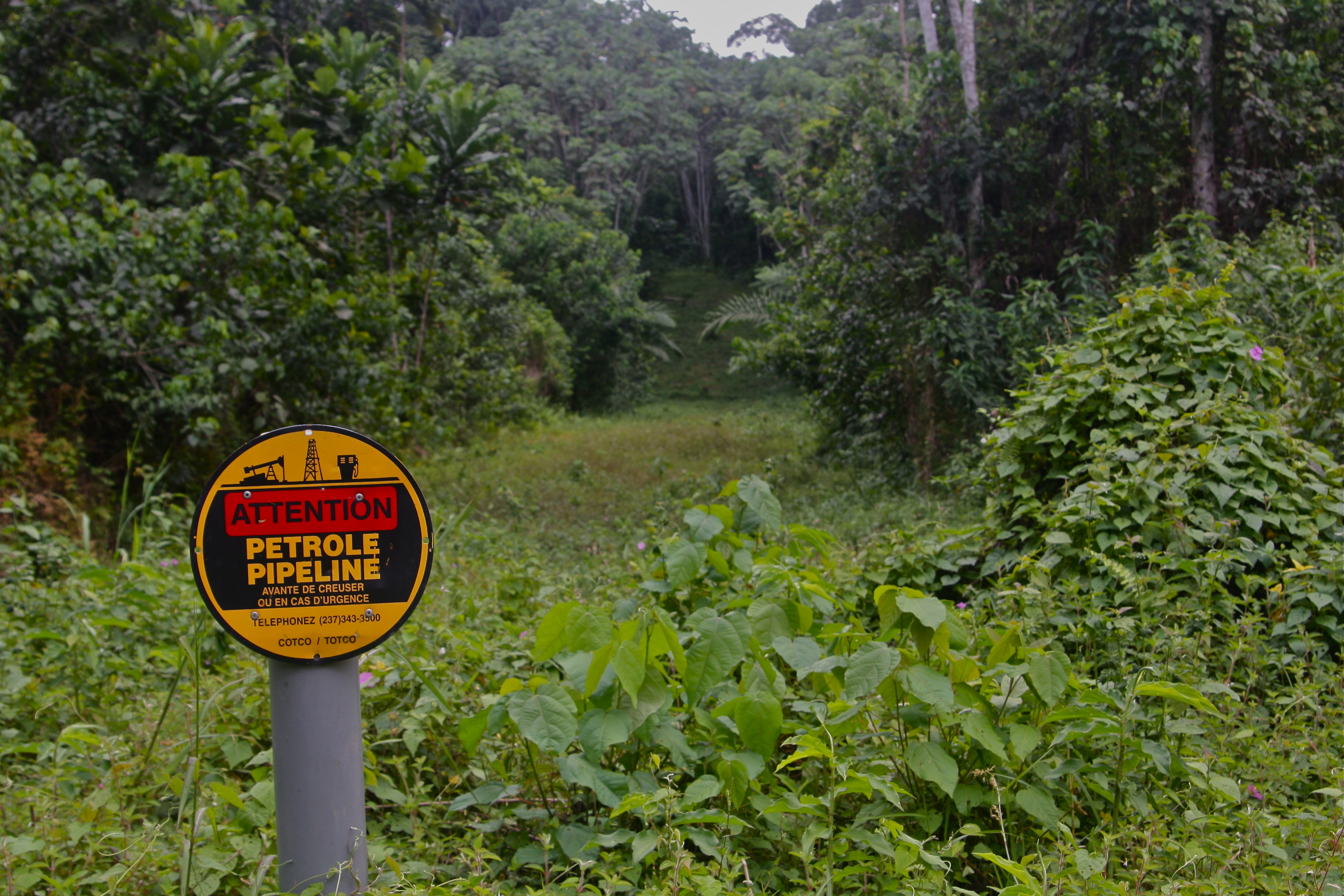Oil City Stories at the Pulitzer Center!

Sekondi-Takoradi, Ghana's "Oil City." The giant fish monument at the Sekondi beachfront roundabout is a testament to the importance of fishing for this town. It seems fitting that the fish appears to be gasping for breath as overfishing and now the oil industry take their toll on local livelihoods. Photo by Christiane Badgley
The Pulitzer Center on Crisis Reporting has launched a project page for Oil City Stories, my work in Ghana. Please visit the page, subscribe, like it on facebook and retweet! I need people who care about these issues to make their voices heard — getting the word out helps me secure the funding I need to continue this work.
I haven’t been posting much the past few days as I’m editing photos and videos. Starting in a few days the videos will go up on the websites of The Center for Public Integrity and The Pulitzer Center, my partners on the Ghana work.
With these videos, I give voice to people and concerns rarely heard in U.S./Western media coverage of the oil industry in Africa. We read about the oil industry in the business pages (or in articles focused on the business side of things) and then we read about MEND operations in the Niger Delta. We rarely hear anything about what happens between the signing of lucrative deals and the rebellions, yet if we want to understand (and avoid) the so-called “resource curse” this is where we need to focus our attention.
Between — it’s where things happen and it’s where I’m working. Stay tuned and please spread the word!
Oil…A Pipeline to Prosperity?

Tourists at Bume Beach, opposite the pipeline's marine loading terminal. Photo by Christiane Badgley
I have produced a short film for PBS/Frontline World to mark the 10th anniversary of World Bank engagement in the Chad-Cameroon Oil Development and Pipeline Project. Cameroon: Pipeline to Prosperity? revisits the story of the “model” oil for development project. Ten years ago the oil companies and the World Bank promised that this project would break the resource curse and prove to the world that oil could be a force for good…
What has happened? Watch the film to see how Chad’s oil has impacted life along the pipeline in Cameroon.
This work was produced with support from Frontline World, The Pulitzer Center on Crisis Reporting and The Center for Investigative Reporting.
Cameroon: Pipeline to Prosperity? is the first installment in my ongoing exploration of Africa’s booming oil industry, Pipe(line) Dreams. You can read more about the project on the website.
Please support my work on this project by viewing the film and leaving your feedback. It is crucial to show funders that this work matters!
The U.S. now imports more oil from Africa than from the Middle East, with oil accounting for more than 80% of all African imports into the country. African is soon expected to account for close to one quarter of U.S. oil consumption.
With Africa increasingly seen as the next frontier of oil exploration, there is no shortage of oil companies lining up for financing from the World Bank Group. Oil drilling has begun in Ghana with support from the World Bank Group; loans may soon be approved for Uganda. New oil has been found in Chad, Cameroon, Nigeria, Angola — even Sierra Leone. The list goes on, with government and corporate officials in each country promising to make oil work for the people.
But in countries lacking accountability, with weak legal systems and lax or nonexistent environmental regulation and enforcement, is oil really a viable development option? And is there a valid reason that public funds subsidize these projects? Both the U.S. and China depend heavily on African oil, yet we rarely see anything about how that oil dramatically transforms African communities, economies and environments. Pipe(line) Dreams, a timely and globally relevant story, will bring much needed attention to the rapidly expanding oil industry in Africa.
A new article on the Chad-Cameroon Oil Pipeline
I read a strong piece today on AlterNet, A Humanitarian Disaster in the Making Along the Chad-Cameroon Oil Pipeline — Who’s Watching?, written by Brendan Schwartz and Valery Nodem who I recently had a chance to meet in Yaoundé.
The article provides an excellent summary of much of what’s wrong with the Chad-Cameroon oil pipeline… and describes many of the ongoing issues that prompted me to begin work on the Pipe(line) Dreams project.



